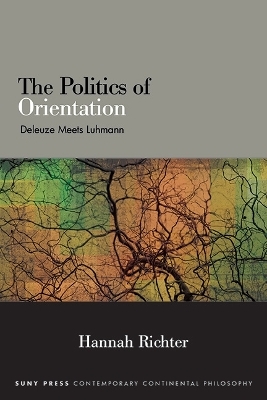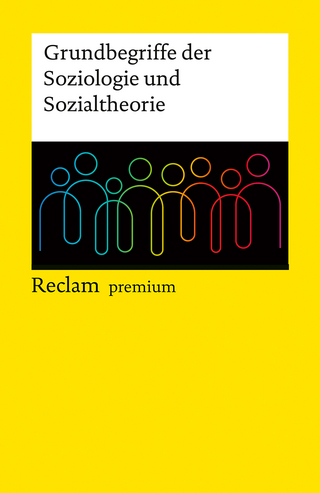
The Politics of Orientation
Deleuze Meets Luhmann
Seiten
2024
State University of New York Press (Verlag)
978-1-4384-9505-7 (ISBN)
State University of New York Press (Verlag)
978-1-4384-9505-7 (ISBN)
Interlinks Gilles Deleuze's critical philosophy with Niklas Luhmann's systems theory to unpack contemporary democratic politics as a contest for complexity-reducing orientation in sense.
The Politics of Orientation provides the first substantial exploration of a surprising theoretical kinship and its rich political implications, between Gilles Deleuze's philosophy and the sociological systems theory of Niklas Luhmann. Through their shared theories of sense, Hannah Richter draws out how the works of Luhmann and Deleuze complement each other in creating worlds where chaos is the norm and order the unlikely and yet remarkably stable exception. From the encounter between Deleuze and Luhmann, Richter develops a novel take on postfoundational ontology where subjects and societies unfold in self-productive relations of sense against a background of complexity. The Politics of Orientation breaks and rebuilds theoretical alliances by reading core concepts and thinkers of Continental Philosophy, from Leibniz to Whitehead and Marx, through this encounter. Most importantly, the book puts Luhmann and Deleuze to work to offer urgently needed insight into the rise of post-truth populism. In our complex democratic societies, Richter argues, orientation against complexity has become the ground of political power, privileging the simplistic narratives of the populist right.
The Politics of Orientation provides the first substantial exploration of a surprising theoretical kinship and its rich political implications, between Gilles Deleuze's philosophy and the sociological systems theory of Niklas Luhmann. Through their shared theories of sense, Hannah Richter draws out how the works of Luhmann and Deleuze complement each other in creating worlds where chaos is the norm and order the unlikely and yet remarkably stable exception. From the encounter between Deleuze and Luhmann, Richter develops a novel take on postfoundational ontology where subjects and societies unfold in self-productive relations of sense against a background of complexity. The Politics of Orientation breaks and rebuilds theoretical alliances by reading core concepts and thinkers of Continental Philosophy, from Leibniz to Whitehead and Marx, through this encounter. Most importantly, the book puts Luhmann and Deleuze to work to offer urgently needed insight into the rise of post-truth populism. In our complex democratic societies, Richter argues, orientation against complexity has become the ground of political power, privileging the simplistic narratives of the populist right.
Hannah Richter is Lecturer in Politics at the University of Sussex. She is the editor of Biopolitical Governance: Race, Gender and Economy.
Acknowledgments
Introduction
1. The Immanent Creativity of Sense
2. Nomadic Monads at the Autopoietic Fold
3. The Circle of Time Must Be Decentered
4. Bifurcating the Political Event
5. The Politics of Orientation
6. Post-truth Populism as a Politics of Orientation
Conclusion
Notes
References
Index
| Erscheinungsdatum | 06.04.2024 |
|---|---|
| Reihe/Serie | SUNY series in Contemporary Continental Philosophy |
| Zusatzinfo | Total Illustrations: 0 |
| Verlagsort | Albany, NY |
| Sprache | englisch |
| Maße | 152 x 229 mm |
| Gewicht | 227 g |
| Themenwelt | Geisteswissenschaften ► Philosophie |
| Sozialwissenschaften ► Soziologie ► Allgemeines / Lexika | |
| ISBN-10 | 1-4384-9505-6 / 1438495056 |
| ISBN-13 | 978-1-4384-9505-7 / 9781438495057 |
| Zustand | Neuware |
| Haben Sie eine Frage zum Produkt? |
Mehr entdecken
aus dem Bereich
aus dem Bereich
Buch | Softcover (2024)
Phillip Reclam (Verlag)
CHF 17,90


